20 January 2020, Athens
Professor Paul Cartledge, A.G. Leventis Professor of Greek Culture emeritus University of Cambridge and Vice-Chair of BCRPM, spoke at the Stavros Niarchos Foundation Cultural Centre for a conference:Thermopylae & Salamis, Evaluating their Importance to the Modern World. His speech was entitled: Greece's Finest Hour? Salamis 2500 in Democratic Perspective.
'Democratic Implications': a lecture to reconsider the Battle of Salamis (September 480 BCE) and its wider implications from a specifically democratic point of view, i.e., in what way(s) was the Battle and (loyalist) Greek victory a victory of and for democracy?
Ancient Greek demokratia was not our (modern, liberal, representative) 'democracy': the ancient Athenians invented demokratia - people-power - and enjoyed it in various forms for almost 200 years (c. 507-322/1 BCE). In the 330s the Athenians felt that their demokratia was under threat from - monarchical, autocratic - Macedon. Hence the passage of this law against tyranny, proposed by Eukrates. Not all Athenians could read but most had eyes to see, and what is shown here in the crowning relief above the text of the Law is Demokratia in action - the goddess Demokratia crowning an imaginary ideal representation of the Athenian Demos ('People').
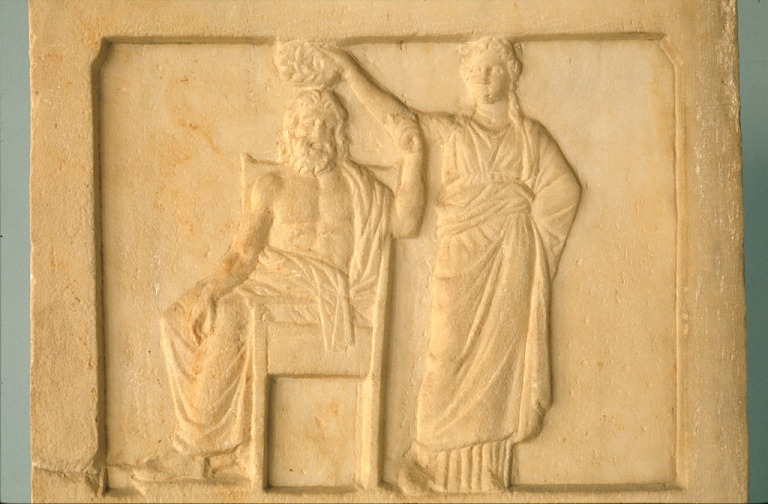
Statue-group of the so-called 'Tyrannicides' (turannoktonoi in Greek), Harmodios and Aristogeiton. This is a very much later, Roman copy in marble of a bronze original of the 470s which itself was a replacement for the c. 506 original. Actually - as historian Thucydides caustically observed - Harmodios and Aristogeiton did not kill the tyrant Hippias (but his younger brother), but the Athenian democracy, which was founded a half-dozen years later, treated the assassination retrospectively as the democracy's founding mythical charter - demokratia thus being seen as essentially anti-tyranny.
The Athenians' 'Treasury' at Delphi 480s BCE: in 490 the Athenians together with their allies from Plataea defeated a much larger Persian army on the battlefield of Marathon in eastern Attica - the Treasury the Athenians then had built at Delphi, symbolic religious centre of all Hellas, alongside the Sacred Way, marked that victory for all other Greek and non-Greek worshippers to see. Herodotus, historian of the Graeco-Persian Wars and indeed the world's first historian properly so called, made the connection explicitly between the introduction of demokratia (in the form of equalityof political speech) at Athens and the Athenians' new prowess on the battlefield (5.78).
Ostracism (ostrakophoria) at Athens in the 480s:
Aristeides
Themistocles
Marathon was a great victory - but the Persians could not let it go at that: they would be back, and in huge force, by both land and sea, to conquer and occupy. The burning question for the Athenians of the 480s therefore was - what attitude should we adopt towards the Persians?
Appeasement (note the deliberate reminiscence of Britain in the 1930s vis-a-vis Nazi Germany)? Or Resistance? If the latter, how best to resist?
Beginning in the early 480s a series of ostracisms were held by the Athenians to try to decide the issue in a specifically democratic way: first, the Assembly was asked - do you wish to hold an ostracism? if a majority voted yes, then this procedure was held a couple of months later.
Ostracism was in effect a reverse election - the 'candidate', ie the leading politician, who received the most (negative) votes of the 6000 plus cast (on named potsherds, ostraka) was ostracised, that is, exiled for 10 years... One of the several ostracised was Aristides (though in 480 he was recalled in the dire emergency situation).
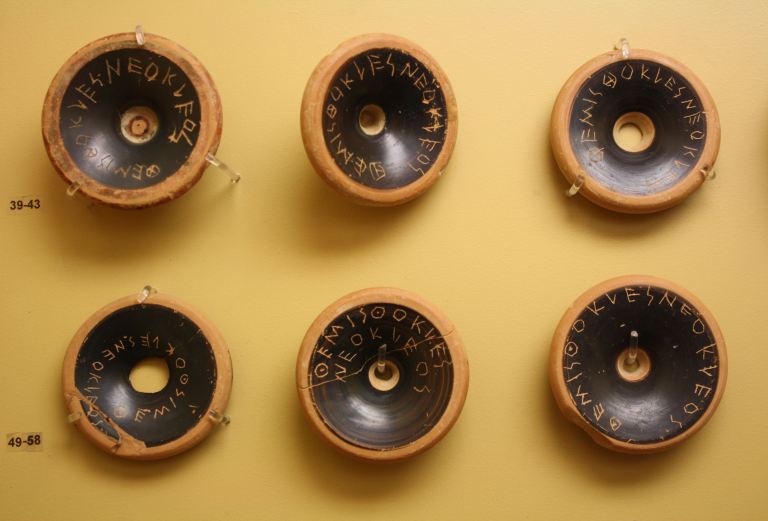
The candidate who survived every ostracism procedure of the 480s and emerged triumphant at the end of the decade was Themistokles son of Neokles of the deme Phrearrhoi. It was he who advocated a predominantly naval policy (despite Marathon having been won by the heavy infantry), he who masterminded the Greeks' naval victory at Salamis in September 480 (though the Admiral of the Fleet was formally a Spartan), and he who therefore differentially empowered the poorer Athenian citizens who rowed the trireme warships (Athens supplied up to 200). In short, after Kleisthenes, Themistokles was the Second Founder of demokratia for the Athenians.
The Parthenon - 'Parthenon' is of course a modern name - in antiquity that was the name only of the cella, the central hall in which was erected the cult-statue of Athena Parthenos 'Virgin'. The Parthenon was indeed a religious building, a temple, but it was a very peculiar one; Athena Parthenos did not have her own dedicated altar. It had therefore important secular as well as religious functions - it celebrated civilisation over barbarism, Hellenism over foreignness, and, above all, Athenian democracy over all other forms of political organisation Greek or non-Greek. Not least, it housed the Athenians' treasury - or war-chest. The Parthenon was voted, erected, supervised and managed by and largely for the Athenian Demos.
19th-century lithograph showing Salamis as visible from the Acropolis. Actually the key ancient view was from the Propylaea, started a decade after the Parthenon, and never finished: it was so designed as to frame Salamis as one exited the Acropolis - after, for example, taking part in the Panathenaea festival (depicted ideally in the Parthenon frieze). The Battle of Salamis therefore and thereby was added to the Battle of Marathon as the twin founding victories not only of Athens and of Greece but of demokratia.
Professor Paul Cartledge, A.G. Leventis Professor of Greek Culture emeritus University of Cambridge and Vice-Chair of BCRPM.

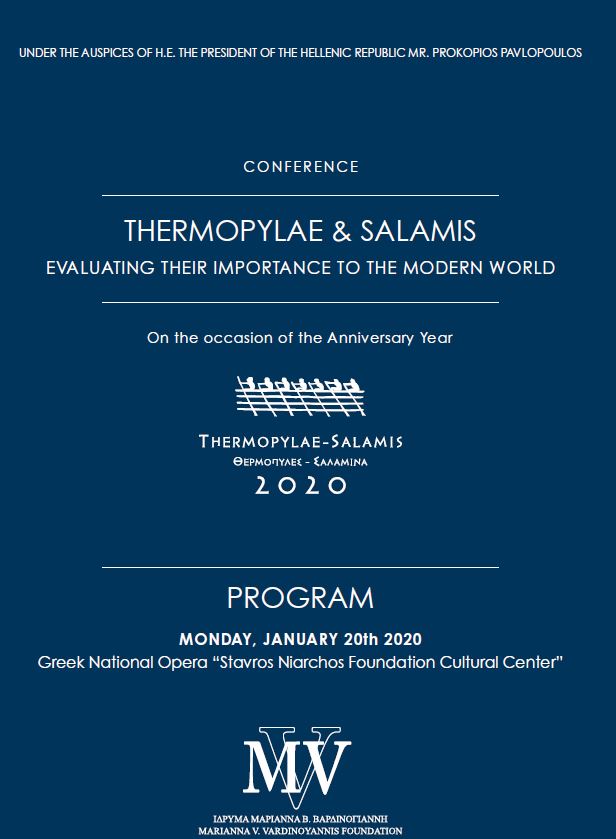
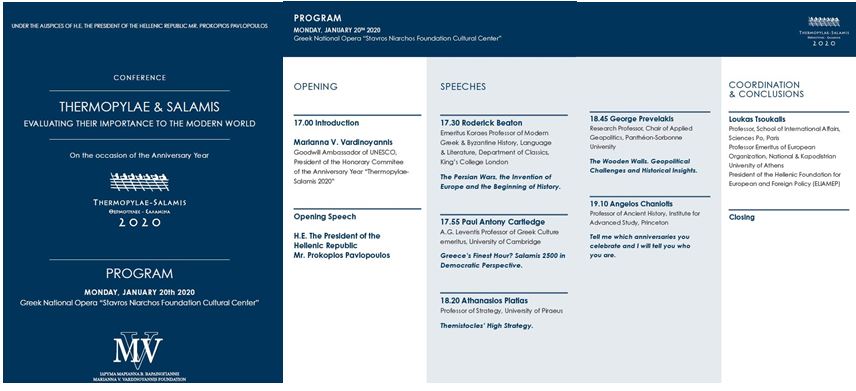

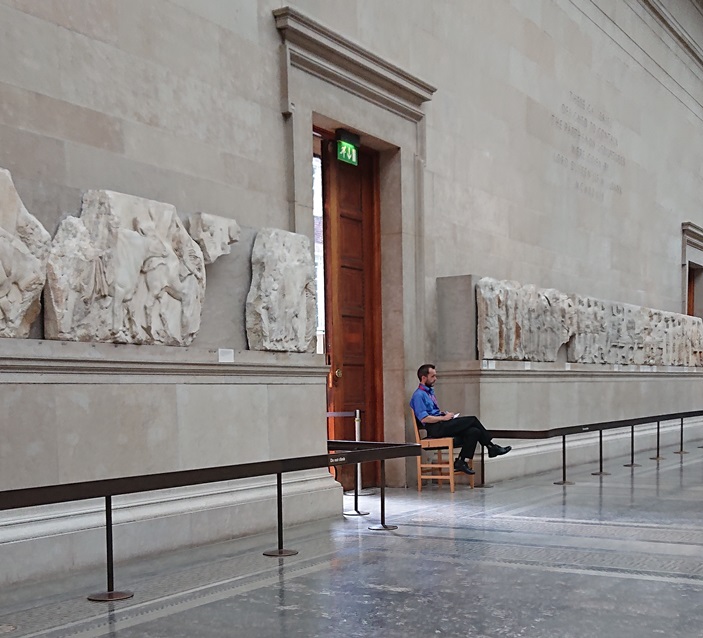
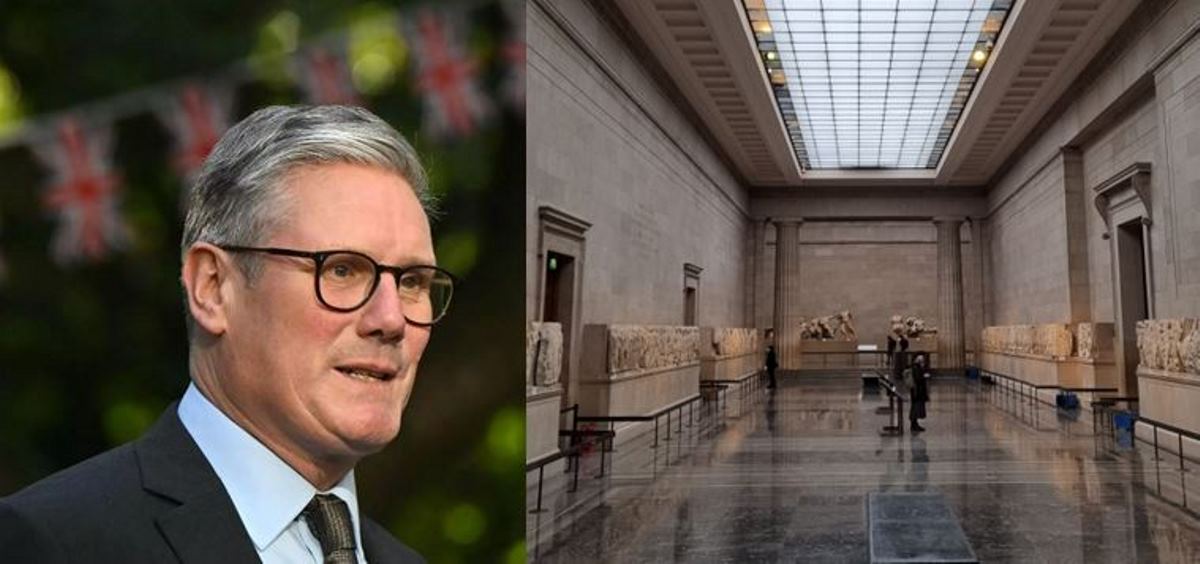


Comments powered by CComment